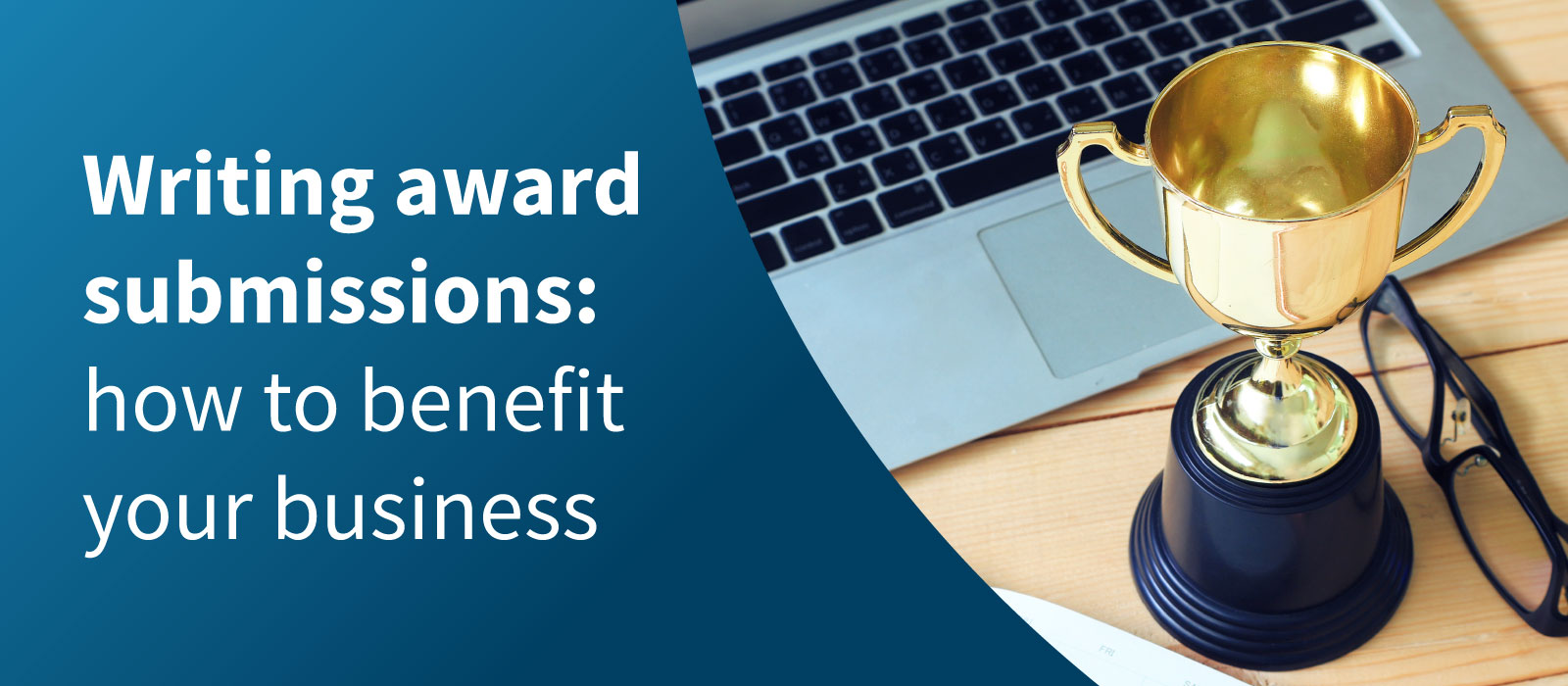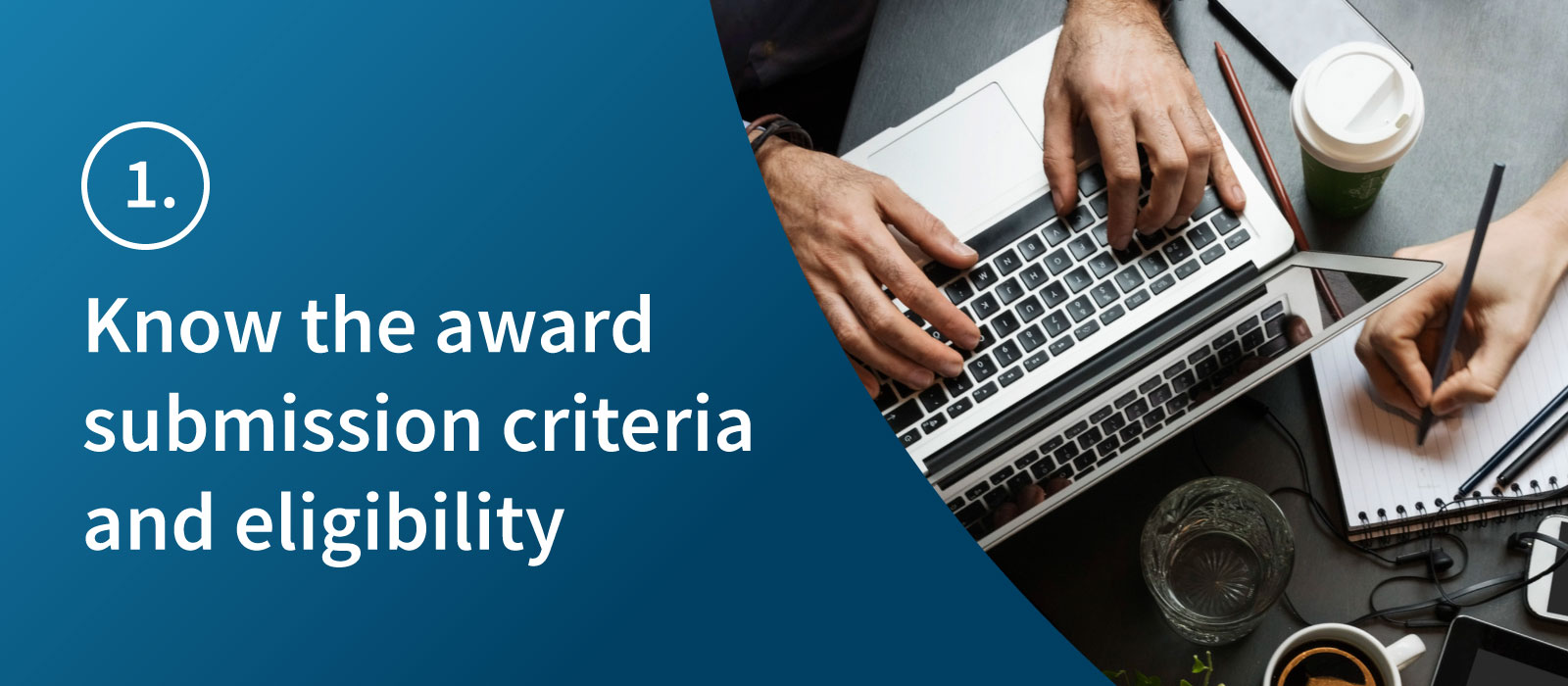Writing submissions for awards: how to benefit your business

Organisations that operate in the business-to-business (B2B) environment and sell complex, high-value products or services often find it challenging to communicate successes and point of differences.
However, winning or even being shortlisted for business awards can be an effective way to demonstrate your organisation’s position as an industry leader while simultaneously showcasing your consistency and credibility to potential customers and partners. This is especially true when the recognition comes from credible sources, such as customers and partners, industry associations, and leading media publications.
For this reason, awards writing should form a key part of your brand strategy. In particular, it gives your business opportunities to:
- effectively showcase your ground-breaking, innovative projects
- create brand alignment for your company with other industry-leading vendors and organisations
- inform your network of your successes.
While not every company has experience writing winning submissions, many business leaders do recognise the inherent value of throwing their hats in the ring and nominating their organisation and employees for awards.
However, there are three key things you need to know and do to set your business up for success when it comes to writing winning submissions.
1. Know the award submission criteria and eligibility

It may seem obvious, but your chances of winning professional awards can significantly reduce if your submission doesn’t meet the criteria, or you are otherwise ineligible for the award or category you’re contending for. Despite this, companies often submit for awards when they don’t quite fit the bill. It’s not beyond the realms of possibility to think that having any submission at all—even if incomplete—is better than not trying at all; however, this can be a misguided approach.
Professional awards criteria are an important way for organisations to tell you what you’ll be judged on. Using the criteria as a guideline for your story guarantees that the narrative aligns with the judges’ expectations, keeping you in contention for awards.
Awards criteria also helps give the judges an apples-to-apples comparison of your submission against the field of entries. If you’re asked for year-on-year (YoY) growth or specific metrics about your project, it’s safe to assume that the judges will be comparing your success to other submissions. This is your opportunity to demonstrate the true value of your project for the customer.
Consequently, you should submit a project where you have this information available so you can appropriately illustrate your success and expertise in this field. As an example, a recent customer win may not be the best choice for an awards submission that has this type of criteria, even if the anticipated benefits are strong. Instead, it might be a more appropriate submission for the following year.
Paying close attention to awards criteria will also show you where your strengths (and weaknesses) are, based on what is being asked. Carefully consider the awards criteria as a guide to help you drill down into the true customer benefits of your projects.
If you fail to take the time to understand awards criteria and eligibility requirements and hastily draft an awards submission that doesn’t even cover the basics, your entry will likely be overlooked by the judges. You could also ruin your chances of future awards success by indicating that you don’t value or respect the judges’ time or their intelligence.
Not every company, employee, or project is suited to every award. Be sure to consider Australian business awards or categories that you may be eligible for, especially if you have a strong customer story or project.
2. Bolster your awards submissions with data and customer references

Data plays an important role in awards submissions: telling a story is one piece of the puzzle, but you need to back it up with verifiable figures to show the full picture. You can strengthen your submission by including measurable data points that demonstrate your achievements and give you a competitive edge.
Because data points make it easier for judges to assess the scale and value of your work against other submissions, you can increase your chance of success by matching relevant criteria to supporting data sets and metrics. If the criteria are looking for specific benefits the customer has realised as a result of your project, it’s critical you include facts and figures to back up your claims. Consider including independent, third-party information as attachments with your submission for an extra boost.
A written reference or testimonial from your customer can also illustrate your organisation’s benefits. Where possible, include third-party references from respected and established sources to strengthen your submission and build your credibility.
3. Go back to the awards submission basics

While it’s critical to meet the criteria and include supporting information in your awards submissions to tell a strong story, often the most important and overlooked elements are the very basics, including careful editing and adhering to the word count.
- Word count: just as writing your submission takes time, reading and assessing it does, too. The word count signifies how long (or short) your submission should be, and ultimately ensures judges have enough time to read the information you’ve provided. It’s crucial that you adhere to these limits so the judges can get through all the awards submissions by the deadline. By writing too much and exceeding the word count, you risk your submission not being read in its entirety. Submitting something that’s too short will also potentially indicate that your awards submission is weak and lacks substance. It might also be an indicator that you’re missing relevant supporting information.
- Editing: a careful edit will keep your award submission within the word count while also helping you make your submission as perfect as possible. A poorly written submission littered with spelling and grammatical errors can make it look rushed. Incorrect spelling or the use of particular words or phrasing can also impact on the quality of your submission by changing the story you’re telling, even if it’s a very subtle change. Working with an external copywriting agency that offers proofreading services can help you tidy your submission, especially if communication isn’t your area of expertise.
For the best chance of success writing award submissions, you need to get the basics down: working with a professional communications agency to craft your awards submissions can help you achieve this. Outsource offers professional award writing and proofreading services to help you put your best foot forward every awards season.
Contact the team today for more information on how you can work with Outsource to create winning award submissions.












